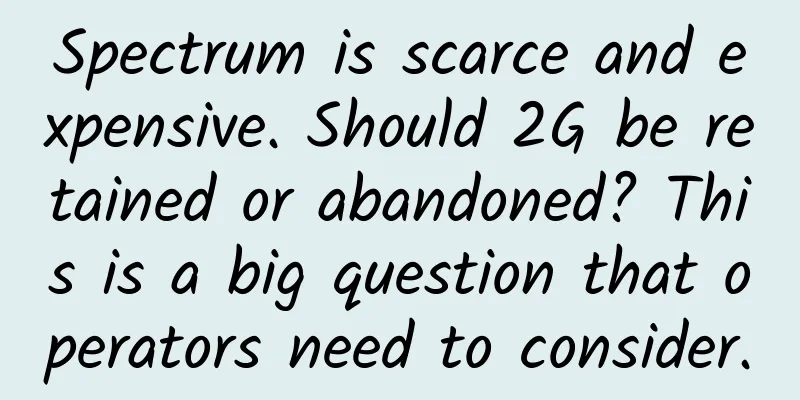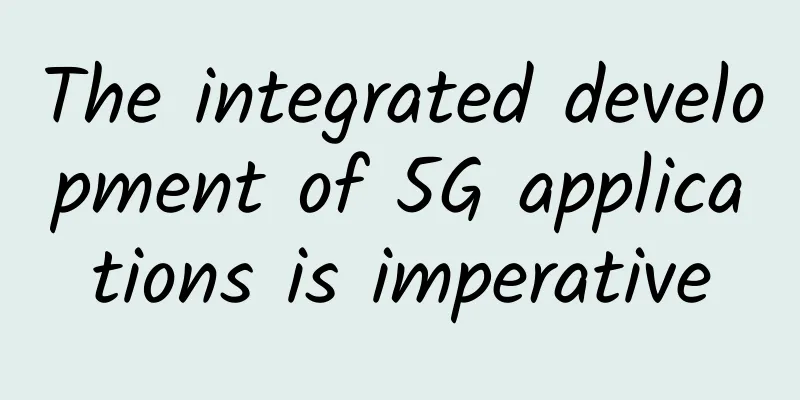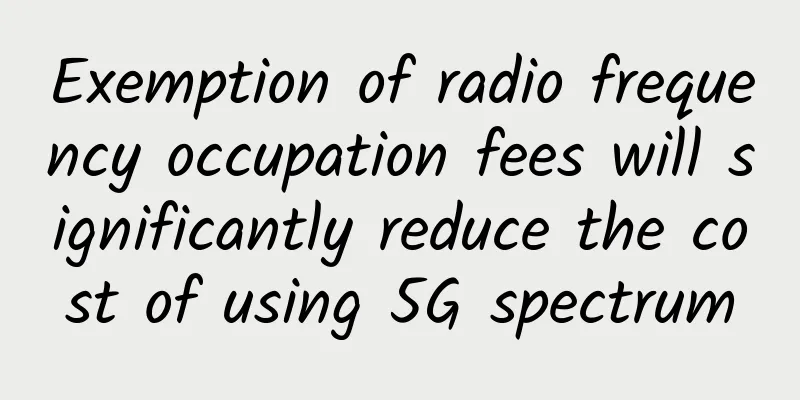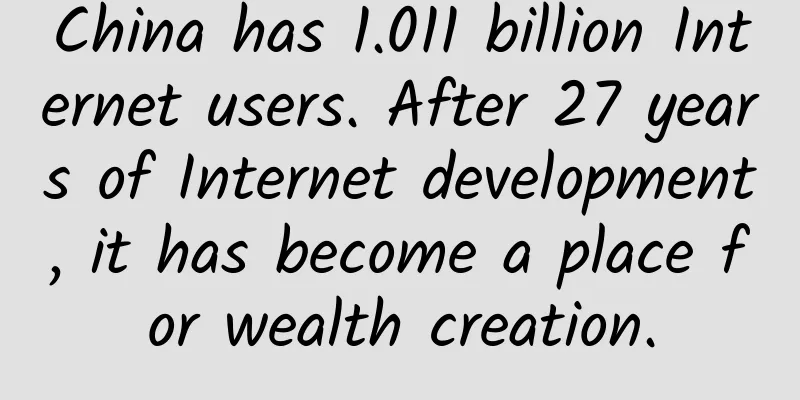Huawei and Sinopec Yingke jointly promote intelligent manufacturing platform to reduce burden and increase efficiency in the petrochemical industry
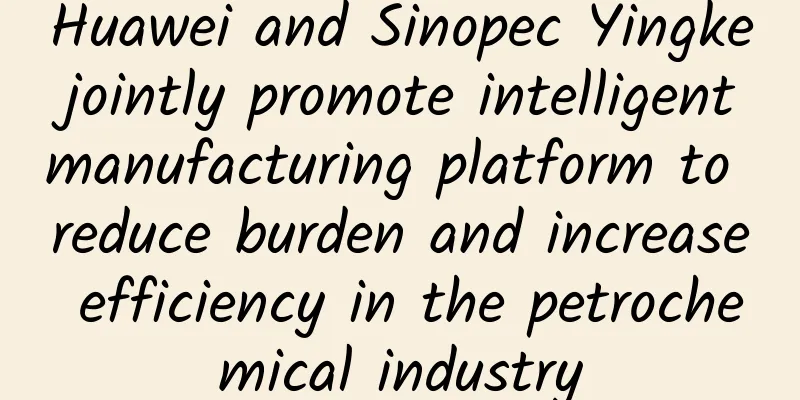
|
[51CTO.com original article] Not long ago, Huawei and Sinopec Yingke grandly launched the most important joint innovation results after the in-depth cooperation between the two parties, which is also the core content of Sinopec Smart Factory 2.0 construction - the intelligent manufacturing platform for the petrochemical industry. This fully embodies eight core capabilities such as centralized integration, IoT access, IT control, optimization, shared services, data processing and analysis, and artificial intelligence, and is regarded as the "operating system standard" for future process industry intelligent manufacturing. Huawei and Sinopec Yingke both attach great importance to the new product launch. Li Defang, Director of the Information Management Department of Sinopec Group and Chairman of Sinopec Yingke, Liu Chao, Vice President of Huawei Enterprise BG China, Qi Xuezhong, CEO of Sinopec Yingke, and Yao Jiang, Director of the Large Enterprise Business Department of Huawei Enterprise BG China, all attended the event. The reporter interviewed them after the meeting and asked them to share their thoughts and views on the future development of industry cloud, intelligent manufacturing and other fields. Smart petrochemicals, change starts with "innovation"
Li Defang, Chairman of Sinopec Yingke Li Defang revealed that Sinopec Yingke has been involved in the field of intelligent manufacturing for a long time. In 2011, Sinopec Yingke proposed a development strategy of transformation and upgrading, and intelligent petrochemicals is a very important development direction, including intelligent refineries, intelligent pipe networks, intelligent pipelines and other sub-sectors. Its purpose is to use information technology to help the petrochemical industry transform and upgrade, improve quality and increase efficiency. In recent years, smart petrochemicals have indeed achieved considerable results. Li Defang cited three examples of application scenarios. The first is a pilot project in four domestic refineries, achieving a digital automatic collection rate of more than 90%, which increased work efficiency by 10%; the second is the construction of smart oil fields, which reduces a large amount of manpower through digital, automated, and intelligent information means, and achieves a 50% increase in labor productivity; the third is the smart pipeline system, which covers more than 50,000 kilometers of Sinopec's long-distance pipelines, all of which have achieved digital and networked management. For pipeline hidden danger warnings, data transmission, and surrounding situation monitoring, real-time dynamic monitoring and management can be achieved, greatly improving the safety management level of pipelines. When talking about the current situation of the petrochemical industry, Li Defang summarized it as "big but not strong, big but not excellent". He pointed out that China's petrochemical industry can already meet the daily needs of the people, but the petrochemical industry has done relatively little in the high-end and high value-added fields. In addition, there is also the phenomenon of overcapacity in refining. "If we want to change the status quo, we must not only work hard on management, technological innovation, equipment, and transformation, but also use emerging ICT technologies such as the Internet of Things, big data, cloud computing, and artificial intelligence, combined with the business management, technological innovation, and innovative development of the equipment manufacturing industry in the petrochemical industry to form a new production and operation model, improve labor productivity, reduce costs, and enhance the level of safety and environmental protection management." Li Defang emphasized, "This is also an effective way to upgrade the industry and transform the old and new drivers." Improve both internal and external aspects to enable industry digitalization
Liu Chao, Vice President of Huawei Enterprise BG China Liu Chao told reporters that in fact, the cooperation between Huawei and Sinopec Yingke has a relatively long history. As early as 2012, Huawei and Sinopec Yingke had begun discussions on the first phase of the pilot project of the intelligent manufacturing factory, including details such as planning and technology selection. "Sinopec Yingke is a key player in the information construction of the Sinopec system, and Huawei has been the supplier of ICT infrastructure for Sinopec for many years. Both parties have rich accumulation and experience in the industry. Based on the common value to customers in the past, we have built a foundation for strategic cooperation and jointly promoted our subsequent smart factory 2.0 version." In Liu Chao's view, the goal of both parties is to realize the automation, digitization, visualization and integration of refining and chemical enterprises. The intelligent manufacturing platform defined by these standards is the product platform released this time. Liu Chao also said that the joint solution for the petroleum, petrochemical and petrochemical process manufacturing industries jointly created by the two parties has a further meaning for Huawei. This is a very good attempt for Huawei to create solutions externally, improve industry adaptability internally, and enable industry digitalization.
Yao Jiang, Director of the Large Enterprise Business Department of Huawei Enterprise BG China Yao Qiang agrees with Liu Chao's point of view. He believes that petroleum and petrochemicals are typical manufacturing industries, and the safety and reliability of the industry are higher than other industries. Therefore, how to maintain the safety of production is of great significance to the production efficiency and production operation of enterprises. In the process of promoting intelligent manufacturing in petroleum and petrochemicals, Huawei has always put stability and security first, such as equipment alarms and operation maintenance. These characteristics of petroleum and petrochemicals are reflected in the capabilities of ICT, which requires Huawei to provide real-time communication capabilities, real-time computing capabilities, and overall architecture security capabilities in process manufacturing systems. "The future development trend of the petrochemical industry is centralization and intelligence. Only through advanced ICT technology can we drive industry customers to transform to future intelligent manufacturing and realize the grand blueprint of manufacturing companies described by Made in China 2025." Yao Qiang said that the cooperation between Huawei and Sinopec will enable a deeper understanding of the business characteristics of the process industry and transform Huawei's product capabilities into customer business capabilities. From "following" to "overtaking"
Qi Xuezhong, CEO of Sinopec Yingke In the interview, Qi Xuezhong believes that the informatization of the energy industry should adhere to the path of independent development. If it cannot be independent, long-term dependence on foreign countries will inevitably cause problems. In the process of cooperation between Sinopec Yingke and Huawei, Huawei provides enterprise-level infrastructure, cloud platform, information transmission, and data visualization. So what is the value of doing so? Qi Xuezhong gave an example. After the introduction of this system, all managers of petrochemical enterprises can use their mobile phones to see the operation status of the equipment when they go to other places for meetings. This was not possible before. "With the cooperation of both parties and the accumulation of Sinopec for 30 years, we finally formed a platform. The value of this platform lies in that it can carry applications of all enterprises." In his opinion, the informatization development of the energy industry has always played the role of a "follower" of foreign countries in the past, but the goal of Sinopec Yingke is not to "follow" but to "surpass". He believes that perhaps in ten years, China's petrochemical products will also be able to rank among the world's top. What informatization can do is to help users in the petrochemical industry improve their perception capabilities, optimize processes, early warning and prediction, and provide scientific decision-making capabilities, while focusing on six major businesses, including production control, supply chain management, energy management, safety management, safety and environmental protection, and pipeline management. In short, it is to create "intelligent manufacturing". [51CTO original article, please indicate the original author and source as 51CTO.com when reprinting on partner sites] |
<<: Microsoft Build 2017: Officially released Visual Studio for Mac
>>: Overview of the Latest Data Center Network Architecture Technologies
Recommend
How many IP addresses are there in China?
The topic we are going to talk about today is abo...
The development of 5G will open up a new track for the Internet of Things
The Ministry of Industry and Information Technolo...
Chinese giants retreat overseas
A withdrawal movement from Chinese giants is unde...
Report: Global Private 5G Networks Will Take Enterprises to the Next Level!
A recent analysis by Frost & Sullivan shows ...
Three application strategy investment suggestions to help companies improve user experience
Today, the Asia-Pacific region ranks second in th...
The "highest academic degree dialogue" in the history of Huawei Cloud City Summit, doctors in four major fields talked about how to make scientific research benefit society
With the popularization of emerging technologies ...
Wi-Fi chip supply shortage will not be significantly alleviated, and the release of 28nm new production capacity may become the key
According to Electronic Times, industry sources r...
Why do many people still insist on buying 4G mobile phones even though 5G networks have been fully commercialized?
Although 5G networks have been fully commercializ...
Huawei Releases New Intelligent Network Equation: AI+SoftCOM = Autonomous Network That Never Fails
[51CTO.com original article] "Building a ful...
What is Wi-Fi 7, which is more powerful than Wi-Fi 6?
As we all know, Wi-Fi 6 can be said to be one of ...
Understanding Ethernet Switching Technology in One Article
Labs Guide Currently, most campus networks are ne...
Industrial IoT is so important to enterprises that future security is also a focus
Today, the use and growth of mobile technology ha...
Insufficient CMDB Momentum = “Failed” IT Operations?
Whether it is the implementation of ITIL in the e...
RackNerd New Year promotion, 5-room KVM VPS annual payment starts from $14.38, supports Alipay/PayPal
RackNerd has launched its 2021 New Year promotion...
SpeedyPage: $5.39/month KVM-AMD Ryzen, 2G memory, 30G NVMe, 5TB/month, Singapore data center
SpeedyPage is a foreign hosting company establish...

